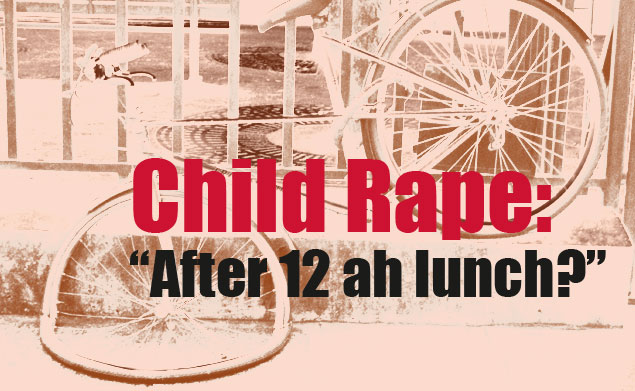
Growing up as a child growing up in a village in the small Caribbean island of St.Vincent and the Grenadines, I was often prohibited from wondering the streets or socialising with other people outside of my grandmother’s direct gaze. To me, such measures seemed extreme and I always rebelled against my grandmother’s control without much success. From my perspective, my grandmother was taking advantage of her power as an elder to run a dictatorship and I was left with very little to no control over my own life.
In 2009, I returned ‘home’ and received a warm welcome from local residents who made it a point to make fun of the little girl who was never allowed to leave “Mam Buelah’s” porch. We all reminisced and laughed about the ‘guarded gate’ which seemed almost impenetrable by most. After we all enjoyed a good laugh, an elder family member interjected with a more serious tone and stated “all jokes aside. You’re lucky your grandmother was very protective of you. She knew how nasty and perverted de man dem here stay and she wanted to mek sure say dem nah tek your innocence away.” Puzzled, I looked at him and asked for clarification. He responded by asking “you neva hear de saying “After 12 ah lunch?” Noting the confusion on my face, he made reference to my ‘inability’ to understand dialect and proceeded to explain that some of the local men in my village are of the mentality that once a girl, or should I say a child, is 12 years of age or older, she is considered fair play (or more fittingly prey) in terms of pursuing a sexual relationship with her.
I love my country and community I grew up in. You could always go to your next-door neighbour and beg some sugar, flour, detergent or any material possession under the sun without having a sense of shame or fear of rejection. Since leaving at the age of 12, I am yet to experience the sense of community, compassion, genuineness and sincerity displayed by the people I grew up with. This that said, I was also blind to some of the ills plaguing my own community.
There was recent public outcry about the acquittal of a Jamaican born pastor, Paul Lewis, who was charged and arrested in June 2009 for having sex with a 15 year old girl, carnal abuse and indecent assault of her 14 year old friend. Despite DNA evidence, Lewis was found not guilty and while many speculate about the reason for his acquittal, including accusations of bribery, others chose to use it to highlight what they see as a problem in many Caribbean islands.
According to Amnesty International’s 2006 report, “Sexual violence against women and girls in Jamaica: ‘Just a little sex’” sexual violence against women is often not reported and it attributed the high rate of under-reporting to “entrenched discrimination” and the “trivialisation” of sexual violence by family and acquaintances as “just a little sex.” UNICEF has also reported that Jamaica is second in the world for child abuse and sexual exploitation. While these studies only made reference to Jamaica, it also speaks to a general issue and mentality espoused by some throughout the Caribbean. The mentality that “after 12 is lunch” as expressed by some men in my country, helps to establish that the issue of child sexual abuse is not just confined to the borders of Jamaica. Many Caribbean islands struggle to curb the problem and have taken important steps, such as introducing and implementing laws and legislations to punish perpetrators and curb the issue.
While I acknowledge that there are many reasons that have contributed the attraction of older men to younger women/children, such as our historical acceptance of ‘womanhood’, which starts at a younger age then Western/North American standards, it still does not negate the need for us in the Caribbean and the Diaspora to make light of the issue and its impact on our societies. One cannot dispute the psychological trauma incurred by a child, which resonates into adulthood, due to sexual abuse. By some of us trivializing the issue of having sex with a child as ‘just a little sex,’ we not only act as active participants in the perpetuation and continuation of this harmful and detrimental practice but we also fail to hold ourselves accountable as a community and a people.
In the Caribbean, we have proven that as a people, we pride ourselves on our sense of community and compassion; therefore, we should ensure that we not only support those measures that enforce these principles but that we also question and condemn those practices that threaten their very existence.
Latest posts by Nekita (see all)
- Before Rihanna there was Grace Jones - December 27, 2014
- Marimba: Expression of Freedom, yet my Afro-Ecuadorians… - December 25, 2014
- Who Makes Claim to Being the Reggae Capital of the World? - December 24, 2014




Pingback: How come we’re poised to end child marriage? | One nation…many bodies…boundless faith